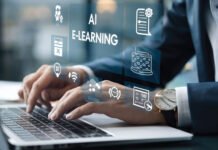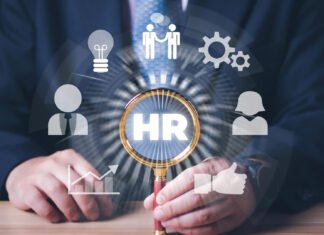A survey released by Insight Enterprises in partnership with The Harris Poll found that 75% of employees believe investing in AI-powered devices will help their employer stay competitive, and a similar number (73%) expect to be more productive in their daily lives. Despite optimism around next-gen, on-device AI, close to half (45%) are cautious that AI-powered devices will make what they do less relevant to their employer.
The research shows nearly two in three employees (64%) believe AI-powered devices will change critical skills needed to do their job. Yet few report feeling anxious (13%), fearful (11%), confused (5%) or overwhelmed (5%) about using generative AI at work.
“The survey results suggest, on balance, employees are optimistic AI-powered devices will help them better leverage AI applications and accelerate productivity,” said Rob Green, chief digital officer at Insight. “This is a strong signal we’re heading into the next phase of the AI adoption journey. As people move forward with the understanding that the technology is here to stay and can augment their everyday work, initial curiosity and concerns have been replaced by a hunger for more knowledge and training from their employers.”
Insight’s latest research — a follow-on to its December 2023 report “Using Generative AI to Improve Productivity and Customer Engagement” and June 2023 report “Beyond Hypotheticals: Understanding the Real Possibilities of Generative AI” — takes the pulse of how 600+ full-time employees at companies with over 1,000 employees are feeling about the adoption of AI-powered devices in the workplace.
“We have reached a redefining moment of AI in the workplace, coinciding with an imminent refresh cycle for devices deployed during the pandemic or nearing the end of Windows 10 support,” said Megan Amdahl, Insight senior vice president of client experience and chief operating officer for North America. “Employers have a unique opportunity to align their device refresh strategy with employee expectations by equipping them with the latest AI-ready devices. It’s an exciting and rare moment when corporate fiscal and IT strategy can be in lockstep.”
The survey examined how employees spanning different generations feel about AI-powered devices. The sample was divided into Gen Z (ages 22-26); Millennials (ages 27-42); and Gen X/Senior (ages 43+) workers. Key findings include:
- Curiosity, Excitement: The youngest cohort (Gen-Z) is the most likely to say they are curious (50%) and excited (37%) by the technology.
- Critical Skills, Job Relevance: Millennials are the most likely to believe AI-powered devices will change the critical skills needed to do their job (72%) and make what they do less relevant to their employer (55%). Nearly half (49%) also believe it will lead to job losses.
- Security Risks, Privacy Violations: Gen X/Senior workers voice more concern about security risks (62%) and privacy violations (55%) compared to their younger colleagues.
Moving forward, employees overall want specific direction from their employers, citing an interest in training (49%) and guidelines/policies (46%) around AI usage. One in three employees (33%) hope their employer will let them choose what kind of device they can use (e.g., traditional, or AI-powered) when they become available.
“Employees want to have a seat at the table. They recognize how fast AI is evolving and don’t want to be left behind with legacy hardware that struggles to run future applications,” said Green.
1 For this survey’s purposes, AI-powered devices are defined as electronic gadgets or machines built with artificial intelligence technologies to perform tasks that traditionally require human intelligence. These devices could include PCs, mobile phones, autonomous vehicles, robotic vacuums, AI-enabled cameras, etc.












